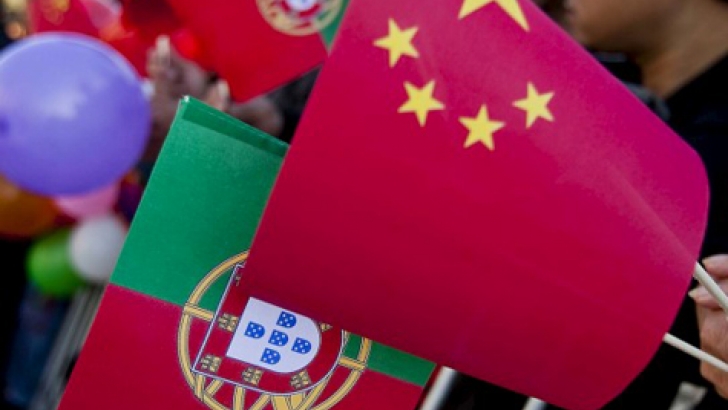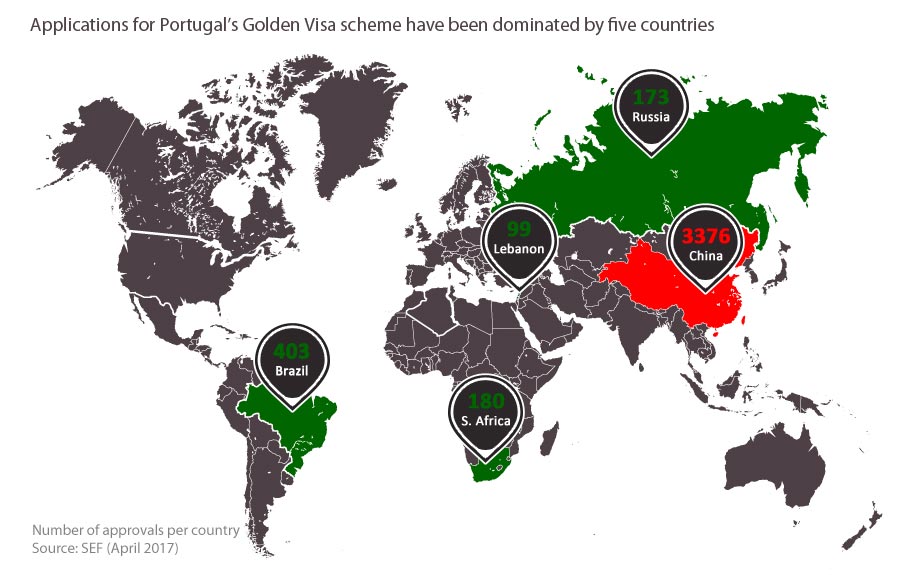
PORTUGAL-CHINA LINKS
Over the last few years, China has become one of the country’s key partners and the main source of foreign direct investment.
The launch of the thrice-weekly Hangzhou–Beijing–Lisbon flight operated by Beijing Capital Airlines, a subsidiary of HNA Group, is expected to further boost economic ties between the two countries.
HNA Group also indirectly holds a stake in TAP Portugal, the Portuguese flag-carrier airline recently privatised.
According the Portuguese Prime Minister António Costa who visited China in October 2016, the new air link will develop the relationship between Lisbon and Beijing while also assisting in the establishment of Portugal as a “major intercontinental hub” for European routes to and from South America and Africa.
In 2016, there were 200,000 Chinese visitors to Portugal – without the benefit of a direct flight to the country; with the introduction of the Beijing–Lisbon flight, accessing Portugal will be more convenient than ever before.
According to Capital Airlines, the airline also plans to open a Macao–Beijing flight, which will coincide with the connection to Lisbon.
At a recent meeting in Lisbon, between Chinese investors and Portuguese entrepreneurs, Secretary General of the Portuguese-Chinese Chamber of Commerce and Industry Sérgio Martins Alves encouraged the government to make the most of China’s investment capacity. Channelling funds towards infrastructure projects, he explained, is essential to the development of the Portuguese economy. In addition to the Port of Sines, Martins Alves referenced the new Lisbon airport and high-speed railway as potential beneficiaries of Chinese investment.

According to Martins Alves, another key trend for the near future will be chinese investment in startups and small- and medium-sized enterprises.
Furthermore, an economic and trade meeting between entrepreneurs from China and Portugal, which took place in Lisbon, has resulted in the signing of four protocols for cooperation in projects and 16 contact meeting, said the Macau Trade and Investment Promotion Institute (IPIM).
Macau’s business environment is itself a huge draw for many international companies, particularly given the territory’s impressive growth in recent years, together with its booming tourism industry. In addition, Macau has a simple taxation system in place, with corporate and individual tax rates never exceeding 12 percent – among the lowest rates in the region. And, like Hong Kong, Macau is a free port.
A flat CIT (Corporate Income Tax) rate of 21% applies on the global amount of taxable income realised by companies resident for tax purposes in Portugal mainland or in the Autonomous Region of Madeira (also applicable to Portuguese PEs of foreign entities).
A reduced CIT rate of 17% applies to SMEs (small and medium-size enterprises) on the first EUR 15,000 of taxable income (the standard CIT rate shall apply on the excess). Additionally, SMEs that are located in Portuguese inland regions benefit from a rate of 12.5% on the first EUR 15,000 of the taxable amount, also being subject to the standard CIT rate on the excess. Entities that do not carry out a commercial, industrial, or agricultural activity as their main activity are subject to a 21% CIT rate on the global amount of their taxable income.
A lower CIT rate of 16.8% applies to companies that are tax resident in the Autonomous Region of Azores, including PEs of foreign entities registered therein.
Sources : newsxinhuanet.com – revealportugal.com – macauhub.com
DISCLAIMER
This publication must not be regarded as offering a complete explanation of the investment matters that are contained within this publication.
Authors are not responsible for the results of any actions which are undertaken on the basis of the information which are contained within this publication, not for any error in, or omission from, this publication.
The authors expressly disclaim all and any liability and responsability to any person, entity or corporation who acts or fails to act as a consequence of any reliance upon the whole or any part of the contents of this publication.
Accordingly no person, entity or corporation should act or rely upon any matter or information as contained or implied within this publication without first obtaining advice from an appropriately qualified professional person or firm of advisors, and ensuring that such advice specifically relates to their particular circumstances.



